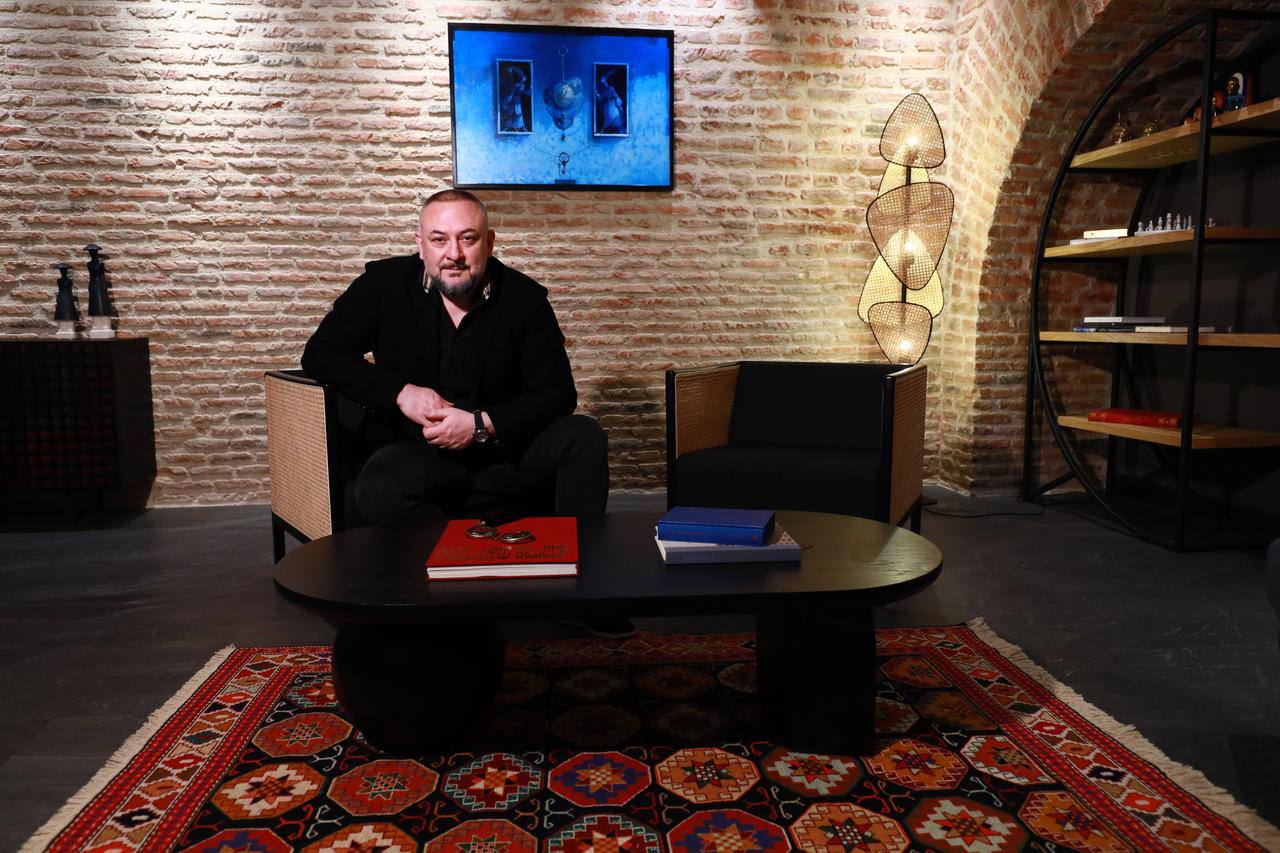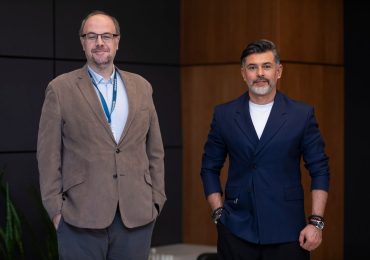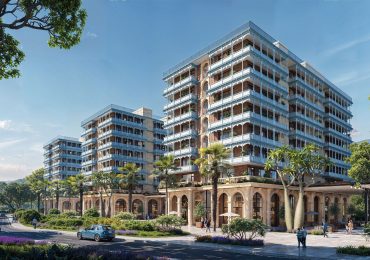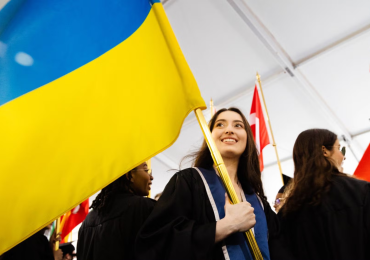For more than a decade, Zurab Kopadze has led the way in Georgia’s tourism industry, significantly influencing Tbilisi’s hospitality sector. His passion for the country’s rich cultural heritage is evident in the unique hotels he has developed, offering visitors an authentic experience in the heart of Tbilisi.
When was the Old Tbilisi Hospitality hotel chain founded, and what inspired its creation?
Tourism is of great significance to Georgia, not only as a vital industry but also because of our deep-rooted tradition of hospitality, which is an integral part of our culture. My personal connection to this field stems from my diverse and enriching childhood. Every summer, I spent time in Borjomi with my grandparents, who were active in the tourism sector. This exposure ignited my lifelong interest in the industry. When it was time to choose a career path, I decided to pursue tourism and resorts, enrolling in the Faculty of International Business. After graduation, I established a travel company focused on domestic tourism, offering licensed services—a concept that was quite unique at the time and garnered significant interest.
As my career progressed, I took on leadership roles in various private and public sector organizations. In 2015, I purchased a resort in Borjomi that held cherished memories from my childhood. Aware of the scale and responsibility of this venture, I initially felt I lacked the necessary experience, so I began with a more modest project—building my first hotel in Tbilisi.
You own four hotels in Tbilisi. What sets Old Tbilisi Hospitality (OTH) apart, and how do they differ from other hotels in Georgia?
The uniqueness of our hotels primarily stems from their exceptional locations. Anyone who has stayed at one of our properties will undoubtedly remember its distinctive architecture and design, which is further confirmed by the international awards we have received in various competitions. In addition to the stunning views and central locations, each of our hotels has its own unique story. All of them are situated in the heart of Old Tbilisi, providing guests with an unparalleled experience of the city’s historic charm. This prime positioning allows us to offer a truly authentic experience while ensuring flexibility for our guests.
As I mentioned, we place great emphasis on preserving the authenticity of our properties. This commitment is evident in the façades, designed to blend seamlessly with the old city’s landscape, and in the interiors, which are crafted to meet modern standards of comfort and design. Our goal is to provide guests with not only a glimpse into Tbilisi’s history but also the highest level of contemporary hospitality.
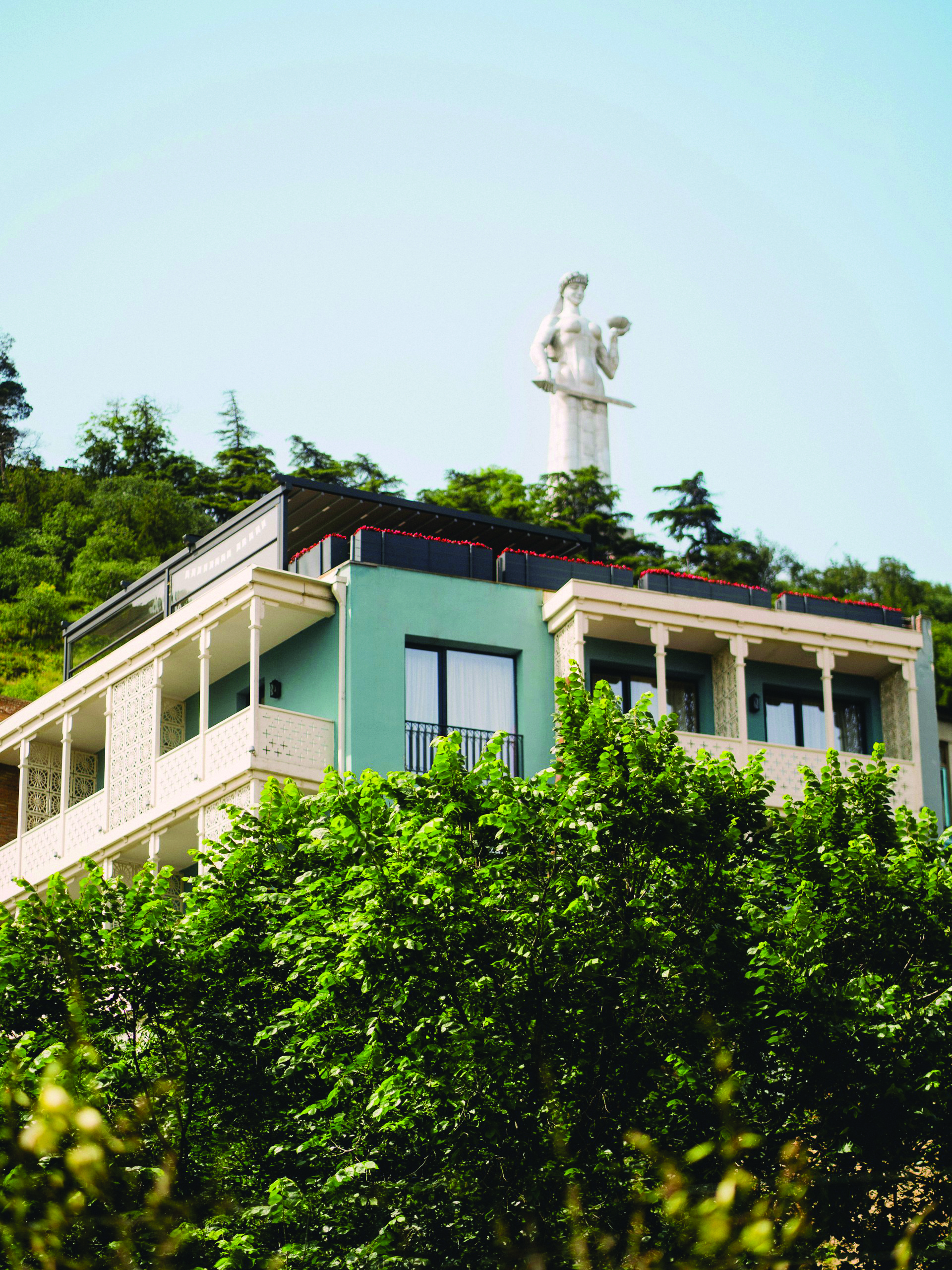
What criteria do you use to select hotel locations, and what is essential in this process? Can you share the story behind the creation of each hotel?
Amante Narikala, the first hotel in the historic Kldisubani district of Tbilisi, opened its doors in 2017. This district is the oldest part of the city, located beside the ancient Narikala Fortress and under the watchful gaze of the iconic Mother of Kartli statue. The surrounding streets reflect the peaceful coexistence of diverse cultures, a theme that is echoed in the hotel’s name, “Amante,” which means “lover” in Georgian.
The hotel’s unique location puts it just steps away from significant cultural landmarks, including St. Nicholas Church, a mosque, a synagogue, and the 7th-century fire temple Ateshgah, which is unparalleled anywhere else in the world. Amante Narikala boasts breathtaking views that overlook the entire Kala district. Its façade features beautifully carved balconies that maintain the historical appearance of the area, complemented by a brick wall. From the beginning, we made extensive efforts to preserve the authenticity of the landscape. A notable design element is found in the lobby, where natural rock formations have been incorporated into the interior design, creating a seamless blend of history and modernity.
Since its inception, Amante Narikala has quickly gained recognition and remains a beloved destination. The success of this unique project inspired our next venture—Sandali Metekhi.
Metekhi Cliff has long been one of Tbilisi’s most iconic landmarks, rich in history and associated with notable figures such as Abo of Tiflis, Queen Tamar, and Arsena Odzelashvili. Our attention turned to this area because it presented a rare opportunity to expand our presence on both sides of the Mtkvari River. After a thorough search, we found a location that perfectly aligned with our vision. In 2021, we opened Sandali Metekhi, a hotel named after the “Victorious Sandal” of Queen Tamar. This distinctive hotel is perched on the banks of the Mtkvari River and offers stunning views of Old Tbilisi and Abanotubani from above. Among its standout features is a unique room that has become a guest favorite, featuring a transparent balcony floor and a glass-walled bathroom— a space I personally designed as the architect.
Around the same time, the rehabilitation of Gudiashvili Park was in progress, and we managed to acquire a 19th-century historical monument located at the intersection of Asatiani and Akhospireli streets, right at the central entrance to Gudiashvili Garden. The building was partially dismantled and fully renovated, and today it houses the Strofi Hotel, which has been operating since 2022. The rooms with views of Narikala, Mother of Kartli, and Kalaubani are particularly popular. The hotel’s name, Strofi, poetically references its location on Lado Asatiani Street and reflects the verses that the poet composed in honor of Old Tbilisi.
The idea for our latest project originated in 2017 during a site visit when Amante was still under construction. It was then that my friend and partner, David Kutateladze, proposed restoring the Qarvasla building, which was in disrepair at that time. This discovery unveiled a true gem of Old Tbilisi. The rehabilitation process began in 2022, and since May 2024, Qarvasla Hotel has been welcoming guests from around the world. The project beautifully blends heritage and modern hospitality.
The Qarvasla building, constructed in 1795 on the site of the King’s caravansarai, which was destroyed during the Persian invasion, holds a significant place in Tbilisi’s history. Also known as Thekla’s Palace, it once belonged to Princess Tekla Batonishvili, the daughter of King Erekle II. Located at the intersection of three historic streets, the building served as an important stop along the Silk Road, where travelers could rest, trade, and connect. With the rehabilitation of Qarvasla, we believe we have not only restored its architectural beauty but also revived its original spirit and purpose.
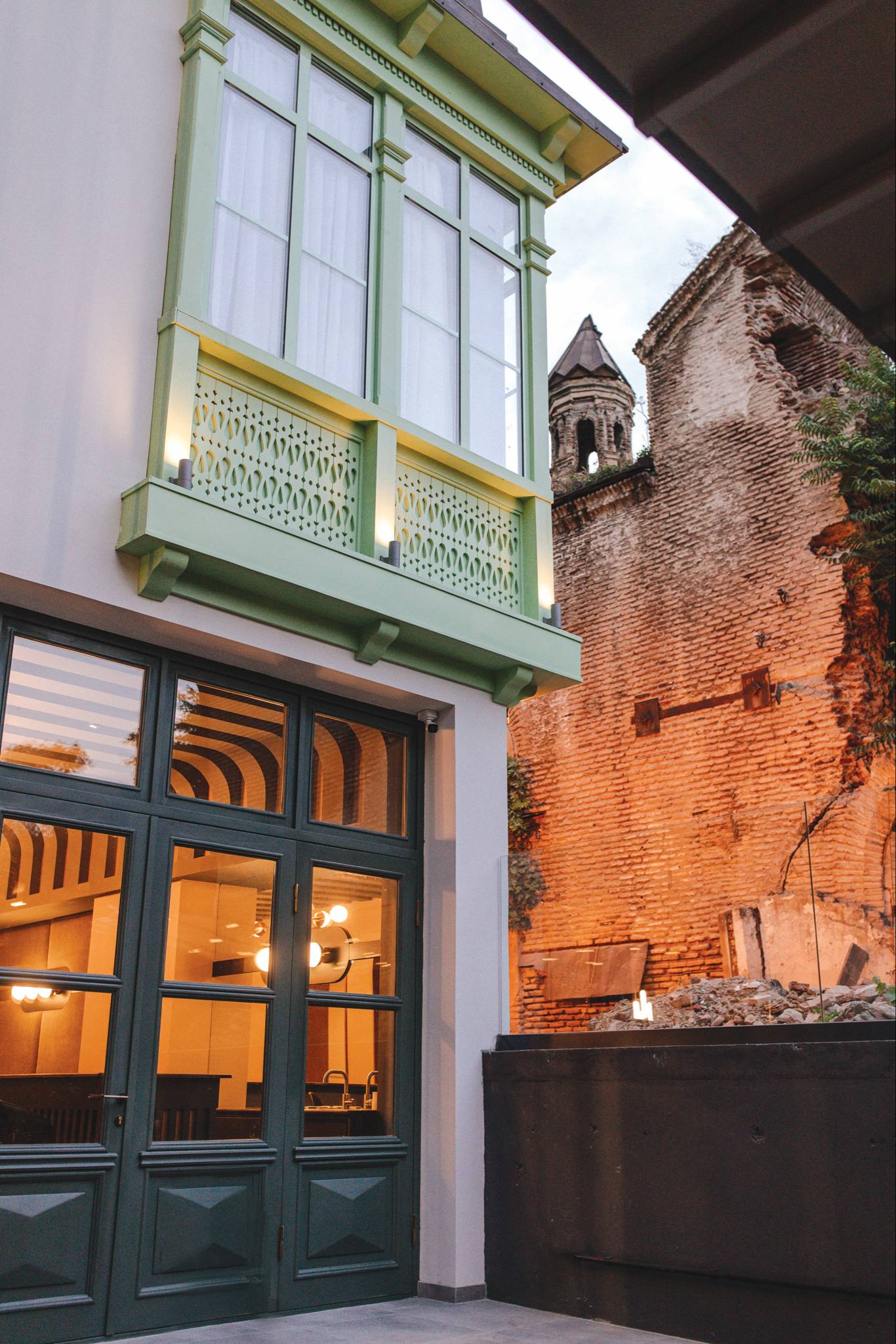
How do you preserve historical heritage and authenticity, while also meeting modern requirements? How do you manage to harmoniously combine these two aspects?
Our properties are located in the heart of Old Tbilisi, so developing them required approval from the Historical Council. I was personally involved in every step of the project, collaborating closely with an outstanding architect and designer. I am incredibly grateful for the expertise they contributed, which helped us achieve the best possible results. Our goal was to preserve the authentic look of Tbilisi while meeting the needs of today’s guests. I’m proud to say that we have successfully maintained the city’s historic charm while providing a modern and comfortable experience. Today, we welcome guests from all over the world, many of whom express their admiration for the unique blend of old and new. We also value our local visitors, who frequent our establishments, as their support is equally important to us.
What services and offerings do your properties provide, and how do local culture and art influence them?
Our smaller properties—Amante, Strofi, and Sandali—primarily operate on a bed and breakfast model. They often host small events and photo shoots on their terraces, which have become particularly popular in recent years. At Qarvasla, we offer a more diverse experience that includes spa services. The hotel features shops showcasing Georgian designers, wines, and local souvenirs. In our inner courtyard, which boasts a stunning view of Sioni Cathedral, our restaurant seats 150 guests and serves authentic Georgian cuisine, complemented by live music.
Additionally, we provide a small conference hall, and the central area showcases rotating exhibitions by Georgian artists.
Who is your hotel’s main audience, and where do most of your international visitors come from?
Our hotels primarily cater to high-income guests, including those from the business sector who can afford to stay in luxury hotel chains. However, our location, architecture, design, and personalized experiences also attract guests who value authenticity, comfort, and history. In terms of our international clientele, we initially saw the greatest interest from neighboring countries, but over the years, the number of visitors from European countries has grown significantly. We have also welcomed guests from the United States, North America, Australia, and an increasing number from the Middle East, China, and Japan. We take pride in hosting travelers from around the globe, and the list of represented countries continues to grow each year.

How do you adjust to your customers’ interests and improve their experience?
I have a profound love for travel that has significantly shaped my approach to hospitality. Throughout the year, I visit various countries, staying in concept hotels and paying close attention to every detail, no matter how small. I would also like to express my heartfelt gratitude to our exceptional team, whose hard work and dedication ensure that every guest receives an outstanding experience. Without them, none of this would be possible.
How do you evaluate the current state of Georgia’s tourism industry, and what is your market position?
As the tourist season approaches, we are optimistic about the upcoming year. We believe that the positive trend we have seen in recent years will continue. We are fully prepared on our end, having developed new ideas, retrained our staff, and raised our service standards. Additionally, we are actively collaborating with both existing and new partners. One of the most exciting developments is the increasing number of tourists arriving from new countries, thanks to the rise in international flights and the entry of new airlines into the market..
What are the main challenges in managing a hotel business in Georgia?
The key challenges we face include maintaining a stable environment and ensuring a skilled workforce. The ongoing events in the country have had some negative impacts on the sector; however, we remain hopeful that stability will return, fostering the continued development of our nation. It took years for Georgia to establish its presence on the global tourism map, a process that required the collective efforts of many individuals and institutions. I am optimistic that, with continued collaboration, we can once again promote stability and economic growth for our country.
In terms of personnel, I am pleased to see a positive shift. There is an emerging generation of exceptionally intelligent and hardworking individuals who are eager to embrace innovation and tackle challenges. Many of these young professionals are part of our team, and we support them as much as possible, encouraging their growth. I am particularly proud that our core team and management have been with us since the opening of our first hotel, and we continue to welcome new team members as we expand. They play an essential role in training new recruits according to our internal standards. It is rewarding to see employees rise through the ranks—from receptionists to general managers—and this serves as great motivation for newcomers.
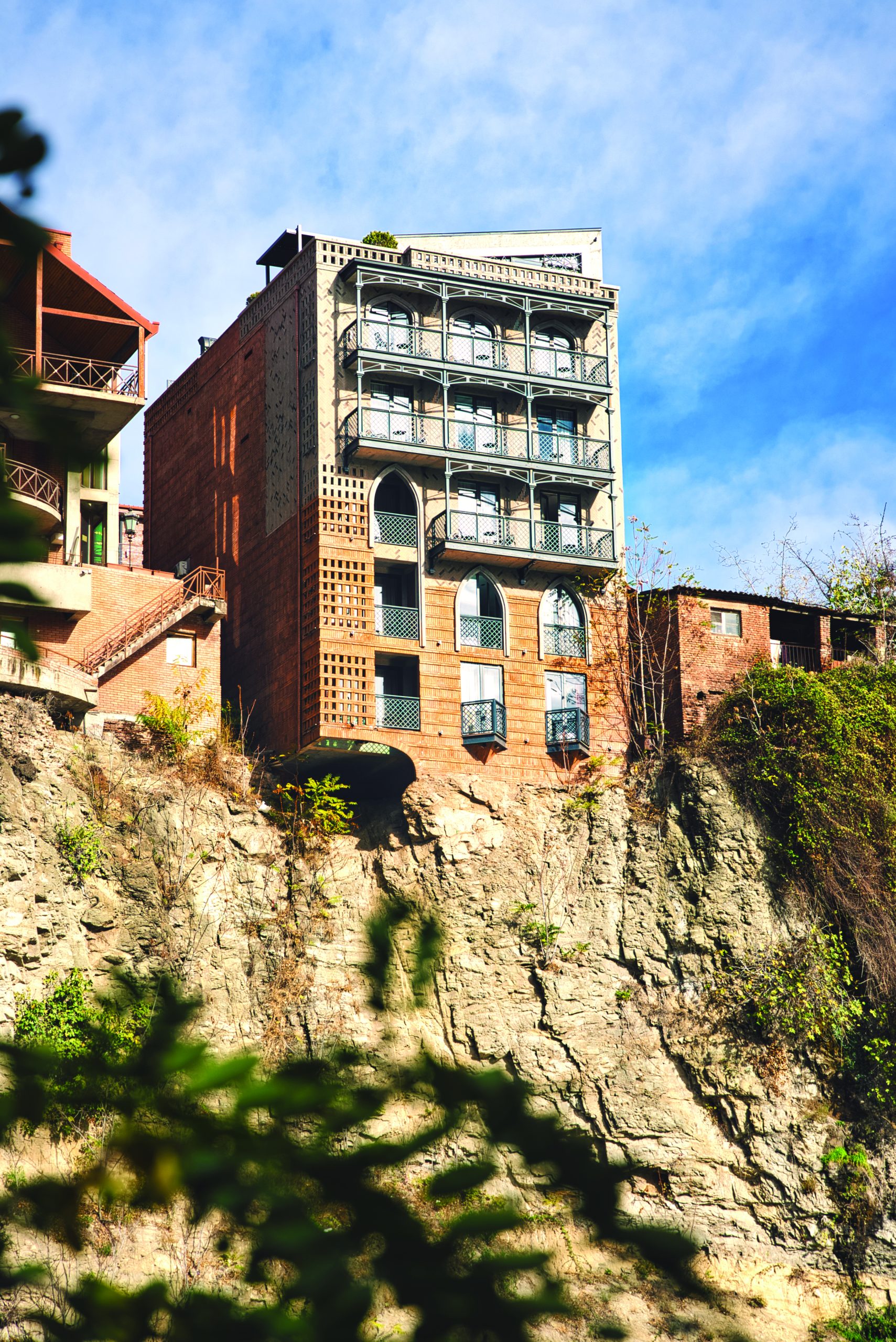
What international trends do you focus on, and how do you adapt to them?
The essence of OTH is deeply rooted in Georgian hospitality. We are a small country with a rich cultural heritage and an ancient history. Despite facing various challenges, our respect for guests is a fundamental part of our traditions. In Georgia, we say, “A guest is from God,” which reflects a level of respect that may not be as prevalent in other cultures.
The hospitality industry in Georgia is still developing, and we are continually learning and improving. While we certainly consider international standards, our primary focus is on nurturing the unique spirit of Georgian hospitality. To support this, we consistently invest in the training and professional development of our team.
With our boutique-style hotels, we can offer a more personalized experience, making each guest feel special. Our priority is to create a memorable emotional connection with guests, going beyond just well-arranged cutlery or standard services. We aim to cultivate an atmosphere where comfort and exceptional experiences leave lasting impressions, encouraging guests to return regularly. This, in turn, fosters a deep love for our country.
What are your future plans for expanding the network and developing new projects? How do you envision the future of the hotel industry in Georgia?
We are currently focused on strengthening the OTH brand. This includes developing new branding and discussing standardization with international industry experts. Additionally, I have initiated a large-scale resort project in Borjomi, which we have talked about previously, and I feel fully prepared to bring this vision to life. I’m excited to share more details about the project in the future.
This resort will be entirely unique, combining balneological treatments with sports, recreation, and retreat offerings. I believe it will play a significant role in the development of the region and the country, as the tourism industry continues to grow in Borjomi, Samtskhe-Javakheti, and Georgia as a whole, with tremendous potential in the global tourism market.

